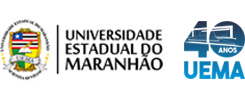Use este identificador para citar ou linkar para este item:
https://repositorio.uema.br/jspui/handle/123456789/1470| Título: | Regulação da explosão oxidativa, qualidade fisiológica de mamões e efeito in vitro do extrato da alga marinha Ascophyllum nodosum sobre o fungo Colletotrichum sp. |
| Título(s) alternativo(s): | Regulation of oxidative explosion, physiological quality of papaya and in vitro effect of seaweed extract Ascophyllum nodosum about the fungus Colletotrichum sp. |
| Autor(es): | Dias, Larisse Raquel Carvalho |
| Orientador: | Reis, Fabrício de Oliveira |
| Membro da Banca: | Serra, Ilka Márcia Ribeiro de Souza Rezende, Dalilla Carvalho |
| Data do documento: | 2019-01-25 |
| Editor: | UEMA |
| Resumo: | O mamoeiro (Carica papaya), pertence à família Caricaceae, produz durante o ano todo, mantendo a geração de emprego e renda continuadamente, ressaltando sua importância social. Porém, os problemas fitossanitários afetam negativamente a produtividade. Na pós-colheita, a antracnose causada por espécies do gênero Colletotrichum, se destaca como uma das doenças mais importantes para a cultura. Objetivando estabelecer um método de controle natural como alternativa de manejo agroecológico da doença, foi avaliado o efeito indutor de resistência do extrato da alga marinha Ascophyllum nodosum, em diferentes doses, sobre o parasitismo de Colletotrichum sp. em mamões, na pós-colheita. Os isolados para a execução dos testes foram obtidos a partir de frutos sintomáticos coletados na CEASA da Ilha de São Luís, MA. Os ensaios consistiram em duas etapas. Na primeira, foi verificado o efeito direto do extrato sobre o fungo. Nesse sentido, foi realizado teste in vitro, para avaliação do efeito fungistático do produto. A segunda etapa observou se o extrato da alga tem potencial em induzir resistência em mamões. Assim, os frutos foram tratados com diferentes concentrações do produto, inoculados com o fungo e acompanhados diariamente para a observação da severidade das lesões formadas, nessa ocasião foram realizadas as análises de perda de massa. Ao final desse experimento, a polpa dos frutos foi retirada para análises químicas e as cascas foram retiradas, liofilizadas e destinadas às análises bioquímicas que consistiram em: conteúdo total de proteínas das parcelas, atividade das enzimas catalase, guaiacol peroxidase e polifenoloxidase. O extrato de A. nodosum, nos testes in vitro, não inibiu o crescimento micelial do fungo, porém as maiores doses usadas influenciaram negativamente na esporulação e germinação do patógeno. Embora o extrato não tenha apresentado efeito contra a severidade de Colletotrichum sp. nos frutos, apresentou efeito eliciador para peroxidase e polifenoloxidase, e também demostrou não influenciar na qualidade pós-colheita dos frutos e ainda retardou o processo de amadurecimento na dose de 1%, como revelado nas análises químicas. |
| Resumo: | The papaya (Carica papaya), belongs to the family Caricaceae, its production takes place throughout the year, highlighting its social importance, by maintaining the generation of employment and continuously income. However, phytosanitary problems negatively affect productivity. In post-harvest, the anthracnose caused by species of the fungus Colletotrichum stands out as one of the most important diseases for the crop. Aiming to establish a natural control method as an alternative for the agroecological management of the disease, the resistance inducing effect of the seaweed Ascophyllum nodosum extract will be evaluated, in different doses, on the parasitism of Colletotrichum sp. in papayas, in post-harvest conditions. We will obtain the isolates for the execution of the tests from symptomatic fruits present in commercial orchards distributed in the Island of São Luís, MA and the tests will consist of two steps. In the first one, the direct effect of the extract on the fungus will be verified. In this sense, in vitro tests, to evaluate the fungistatic effect of the product and the interference of the extract on the permeability of the plasma membrane of the hypha, will be performed. The second stage of the project aims to observe and determine if the algae extract has the potential to induce resistance in papaya. Thus, the fruits will be treated with different concentrations of the product, inoculated with the fungus and daily accompanied to observe the severity of the possible lesions formed. At the end of the experiment that will evaluate the severity of the disease in the treated fruits, the papaya peels will be removed, lyophilized and destined to the biochemical analyzes. In this phase, the project aim to total protein content of the plots, enzyme activity of catalase, guaiacol peroxidase and polyphenoloxidase. The A. nodosum extract, in the in vitro tests, did not inhibit the mycelial growth of the fungus, but the higher doses used negatively influenced the sporulation and germination of the pathogen. Although the extract had no effect against the severity of Colletotrichum sp. in the fruits, presented an eliciting effect for peroxidase and polyphenoloxidase, and also showed no influence on the post harvest quality of the fruits and still delayed the ripening process at 1%, as revealed in the chemical analyzes. |
| Palavras-chave: | Colletotrichum sp Carica papaya Controle alternativo Mamão papaya Cultura do mamoeiro Antracnose – mamão Alga marinha Ascophyllum nodosum Explosão oxidativa mãmão papaya Alternative control - atracnose Papaya Papaya culture Anthracnose – papaya Seaweed Papaya oxidative explosion |
| Aparece nas coleções: | Mestrado em Agroecologia CCA - Dissertações |
Arquivos associados a este item:
| Arquivo | Tamanho | Formato | |
|---|---|---|---|
| DISSERTAÇÃO - LARISSE RAQUEL CARVALHO DIAS - PPGA CCA UEMA 2019.pdf | 911.43 kB | Adobe PDF | Visualizar/Abrir |
Os itens no repositório estão protegidos por copyright, com todos os direitos reservados, salvo quando é indicado o contrário.
